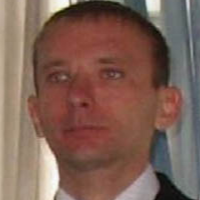International Journal of Intelligent Systems and Applications (IJISA)
IJISA Vol. 10, No. 9, 8 Sep. 2018
Cover page and Table of Contents: PDF (size: 641KB)
The Combined Use of the Wiener Polynomial and SVM for Material Classification Task in Medical Implants Production
Full Text (PDF, 641KB), PP.40-47
Views: 0 Downloads: 0
Author(s)
Index Terms
Machine learning, classification, medical implants, Wiener polynomial, SVM, titanium allows
Abstract
This document presents two developed methods for solving the classification task of medical implant materials based on the compatible use of the Wiener Polynomial and SVM. The high accuracy of the proposed methodology for solving this task are experimentally confirmed. A comparison of the proposed methods with existing ones: Logistic Regression; Linear SVC; Random Forest; SVC (linear kernel); SVC (RBF kernel); Random Forest + Wiener Polynomial is carried out. The duration of training of all methods that described in work is investigated. The article presents the visualization of all method results for solving this task.
Cite This Paper
Ivan Izonin, Andriy Trostianchyn, Zoia Duriagina, Roman Tkachenko, Tetiana Tepla, Nataliia Lotoshynska, "The Combined Use of the Wiener Polynomial and SVM for Material Classification Task in Medical Implants Production", International Journal of Intelligent Systems and Applications(IJISA), Vol.10, No.9, pp.40-47, 2018. DOI:10.5815/ijisa.2018.09.05
Reference
[1]O.P. Ostash, V.V. Kulyk, T.M. Lenkovskiy, Z.A. Duriagina, V.V. Vira and T.L. Tepla, “Relationships between the fatigue crack growth resistance characteristics of a steel and the tread surface damage of railway wheel”, Archives of Materials Science and Engineering, vol. 90(2), pp. 49-55, 2018.
[2]A. T. Sidambe, "Biocompatibility of Advanced Manufactured Titanium Implants—A Review", Materials (Basel), vol. 7(12), pp. 8168–8188, 2014.
[3]N. Boyko, T. Sviridova, and N. Shakhovska, “Use of machine learning in the forecast of clinical consequences of cancer diseases”, In 2018 7th Mediterranean Conference on Embedded Computing (MECO). IEEE, pp.43-56, June 2018.
[4]N. Melnykova, N. Shakhovska and T. Sviridova, "The personalized approach in a medical decentralized diagnostic and treatment," 2017 14th International Conference The Experience of Designing and Application of CAD Systems in Microelectronics (CADSM), Lviv, pp. 295-297, 2017. doi: 10.1109/CADSM.2017.7916139.
[5]Zh. Hu, Ye.V. Bodyanskiy and O.K. Tyshchenko, "A deep cascade neural network based on extended neo-fuzzy neurons and its adaptive learning algorithm," 2017 IEEE First Ukraine Conference on Electrical and Computer Engineering (UKRCON), Kiev, pp. 801-805, 2017. doi: 10.1109/UKRCON.2017.8100357
[6]Zh. Hu, Ye.V. Bodyanskiy and O.K. Tyshchenko, "A hybrid growing ENFN-based neuro-fuzzy system and its rapid deep learning," 2017 12th International Scientific and Technical Conference on Computer Sciences and Information Technologies (CSIT), Lviv, pp. 514-519, 2017. doi: 10.1109/STC-CSIT.2017.8098840.
[7]A. Kazarian, V. Teslyuk, I. Tsmots and M. Mashevska, "Units and structure of automated “smart” house control system using machine learning algorithms," 2017 14th International Conference The Experience of Designing and Application of CAD Systems in Microelectronics (CADSM), Lviv, pp. 364-366б 2017.
[8]Z.A. Duriagina, R.O. Tkachenko, A.M. Trostianchyn, I.A. Lemishka, A.M. Kovalchuk, V.V. Kulyk and T M. Kovbasyuk, “Determination of the best microstructure and titanium alloy powders properties using neural network”, Journal of Achievements in Materials and Manufacturing Engineering, vol. 87 (1), pp. 25–31, 2018. doi: 10.5604/01.3001.0012.0736
[9]R. Tkachenko, Z. Duriagina, I. Lemishka, I. Izonin and A. Trostianchyn, “Development of machine learning method of titanium alloys properties identification in additive technologies”, EasternEuropean Journal of Enterprise Technologies, vol. 3, iss. 12 (93), 2018, pp. 23-31. DOI: 10.15587/1729-4061.2018.134319
[10]Zh. Hu, Ye.V. Bodyanskiy, O.K. Tyshchenko and O.O. Boiko, “A Neuro-Fuzzy Kohonen Network for Data Stream Possibilistic Clustering and Its Online Self-Learning Procedure”, Applied Soft Computing, vol. 68, pp.710-718, 2018.
[11]Ye.V. Bodyanskiy, O.K. Tyshchenko and D.S. Kopaliani, “An Evolving Connectionist System for Data Stream Fuzzy Clustering and Its Online Learning”, Neurocomputing, vol. 262, pp. 41-56, 2017.
[12]Z. Duriagina, R. Holyaka, T. Tepla, V. Kulyk, P. Arras and E. Eyngorn, “Identification Fe3O4 nanoparticles biomedical purpose by magnetometric methods”, Biomaterials in Regenerative Medicine, Edited by Leszek A. Dobrzański, Publisher: InTech, P. 448, 2018, Chapter 17, pp. 379-407.
[13]Ye. Bodyanskiy, O. Vynokurova, G. Setlak, D. Peleshko and P. Mulesa, "Adaptive multivariate hybrid neuro-fuzzy system and its on-board fast learning", Neurocomputing, vol. 230, pp. 409-416, 2017. doi.org/10.1016/j.neucom.2016.12.042
[14]Ye. Bodyanskiy, O. Vynokurova, I. Pliss, D. Peleshko, and Yu. Rashkevych, "Hybrid generalized additive wavelet-neuro-fuzzy-system and its adaptive learning", In: Zamojski W., Mazurkiewicz J., Sugier J., Walkowiak T., Kacprzyk J. (eds) Dependability Engineering and Complex Systems. DepCoS-RELCOMEX 2016. Advances in Intelligent Systems and Computing, vol 470, pp 51-61, Springer, Cham, 2016. doi.org/10.1007/978-3-319-39639-2_5
[15]K. Rajan “Materials informatics”, Materials Today, vol. 8, iss. 10, pp. 38–45, 2005. doi: 10.1016/s1369-7021(05)71123-8
[16]P. Raccuglia, K. C. Elbert, et. al. “Machine-learning-assisted materials discovery using failed experiments”, Nature, vol. 533, iss, 7601, pp. 73–76, 2016. doi: 10.1038/nature17439
[17]K. V. Vorontsov "Lectures on the Support Vectors Method", 2007, (in Russian). URL: www.ccas.ru/voron/download/SVM.pdf
[18]Support Vector Machines. URL: http://scikit-learn.org/stable/modules/svm.html
[19]V. Lytvyn, V. Vysotska, I. Peleshchak, I. Rishnyak and R. Peleshchak, "Time Dependence of the Output Signal Morphology for Nonlinear Oscillator Neuron Based on Van der Pol Model", International Journal of Intelligent Systems and Applications(IJISA), vol. 10, no. 4, pp. 8-17, 2018. DOI: 10.5815/ijisa.2018.04.02
[20]I. Dronyuk, M. Nazarkevych and O. Fedevych, “Synthesis of Noise-Like Signal Based on Ateb-Functions”, In: Vishnevsky V., Kozyrev D. (eds) Distributed Computer and Communication Networks. DCCN 2015. Communications in Computer and Information Science, Springer, Cham, vol. 601, 2016.
[21]C.-C. Chang and C.-J. Lin, “LIBSVM: a library for support vector machines”, ACM Transactions on Intelligent Systems and Technology, 2:27:1--27:27, 2011. Software available at http://www.csie.ntu.edu.tw/~cjlin/libsvm
[22]R.-E. Fan, K.-W. Chang, C.-J. Hsieh, X.-R. Wang and C.-J. Lin. “LIBLINEAR: A library for large linear classification” Journal of Machine Learning Research, vol. 9, pp. 1871-1874, 2008.
[23]A.J. Smola and B. Schölkopf “A Tutorial on Support Vector Regression”, Statistics and Computing archive, vol. 14, iss.3, p. 199-222, 2004.
[24]R.-E. Fan, P.-H. Chen and C.-J. Lin. “Working set selection using second order information for training SVM”, Journal of Machine Learning Research, vol. 6, pp. 1889-1918, 2005.
[25]Z.А. Duriagina, T.L. Tepla and V.V. Kulyk “Evaluation of differences between Fe3O4 micro- and nanoparticles properties”, Acta Physica Polonica A, vol. 133(4), pp. 869-872, 2018.
[26]Data Mining Fruitful and Fun. URL: https://orange.biolab.si
[27]M.N.F. Fajila, M.A.C. Akmal Jahan, "The Effect of Evolutionary Algorithm in Gene Subset Selection for Cancer Classification", International Journal of Modern Education and Computer Science(IJMECS), Vol.10, No.7, pp. 60-66, 2018.DOI: 10.5815/ijmecs.2018.07.06
[28]Mukesh Kumar, A.J. Singh, Disha Handa,"Literature Survey on Student’s Performance Prediction in Education using Data Mining Techniques", International Journal of Education and Management Engineering(IJEME), Vol.7, No.6, pp.40-49, 2017.DOI: 10.5815/ijeme.2017.06.05
[29]Suchit Purohit, Savita R. Gandhi," Application of Sparse Coded SIFT Features for Classification of Plant Images", International Journal of Image, Graphics and Signal Processing(IJIGSP), Vol.9, No.10, pp. 50-59, 2017.DOI: 10.5815/ijigsp.2017.10.06
[30]Scikit-learn Machine Learning in Python. URL: http://scikit-learn.org/stable/





